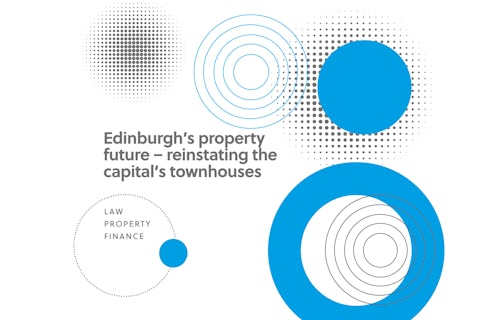As Gourmet Burger Kitchen announces the closure of 17 restaurants in a Company Voluntary Arrangement, the number of empty units on our high streets increases by the day. But when most retail premises are occupied under ten or fifteen year leases, what do these insolvency arrangements mean in practice?
The headlines are increasingly filled with news of yet another high street operator shutting its doors either completely or in part. However, most of the shops being slated for closure are not approaching the end of their lease term. The way the lease can be terminated will vary depending on the nature of the tenant’s financial difficulties.
A commercial lease will provide that a landlord can terminate a lease where the tenant is in material breach (and continues to be in breach after being given an opportunity to remedy). Actual failure to pay rent is an obvious breach of a tenant’s obligations. However, where a retail chain operates from a number of units, the company may be in difficulties, even where arrears have not yet built up. Most leases will therefore give the landlord the right to terminate a lease in any of the following circumstances:-
Tenant company goes into liquidation
Liquidation can take a number of forms and can be voluntary or compulsory. Companies can also be liquidated for the purposes of a corporate restructure, even if solvent, and in that case the landlord usually cannot terminate.
The landlord will normally also be prevented from terminating the lease if an insolvency practitioner personally adopts liability for meeting the tenant’s obligations and paying the rent.
In the case of liquidation, that is unlikely. Any creditor can petition for a company to be placed in liquidation if the company cannot pay its debts when they fall due (usually a supplier, since a landlord or lender will have other remedies available). Once appointed, the liquidator’s duty is to make a fair distribution to all of the company’s creditors – they are unlikely to have any interest in preserving the lease, and the landlord can usually terminate.
Tenant company becomes apparently insolvent
A company will become apparently insolvent if it cannot pay its debts when they fall due. Whilst most leases will allow the landlord to end the lease, in practice this rarely occurs. If this is the only test which the tenant has failed then the landlord still stands a chance of being paid in the ordinary course of business. Most landlords will not normally terminate until more formal insolvency proceedings have taken place – a struggling tenant in the hand may be worth two vacant units in the bush. However, if the landlord suspects formal insolvency may be imminent and believes they can relet to a tenant of better financial standing, they may use the provision to end the lease.
Tenant company has an administrator appointed
A company can either be placed into administration by its own directors or by a creditor. In this scenario, it is possible an administrator may choose to accept liability for the tenant’s obligations. An administrator’s first duty is to try to rescue the company as a going concern, and only if they can’t do that do they then owe a duty to the creditors. If a retail operator is placed in administration, then retaining premises to trade from could be of key importance to the going concern. An administrator may therefore choose to retain profitable stores, but allow landlords to terminate the leases of any which are not under-performing.
Tenant makes an arrangement with creditors
This is often the story which hits the headlines with big name operators. In an attempt to prevent a liquidation or administration, a company may (with the assistance of an insolvency practitioner) make proposals to its creditors about how to proceed. The arrangement can be voted on by and will bind the company’s whole body of creditors. In many cases, it allows the directors of the company to cherry pick which stores to retain. From a landlord’s point of view, some will win and some will lose – and the losers get to terminate their lease. Depending on the nature of the company, there may be different categories of proposal – some may trade as normal; some may agree to pay rent at e.g.sixty pence in the pounds; some may seek a period of time in which to find a new tenant to take their lease over. As this is a voluntary arrangement, rather than a blunt debt recovery tool, this is often a landlord’s best chance to retain a tenant in a high profile store.
Whilst in most cases, leases state that it is the landlord who can elect to terminate, the insolvency legislation will usually let an insolvency practitioner disclaim any leases (or in the case of administration, grant a 12 month moratorium where no enforcement can be taken). If an insolvency event occurs, then a landlord may find its hands are tied. An insolvency or CVA can happen fast, and it is important for a landlord to take professional advice quickly if they are unsure what to do.
If you require any advice regarding commercial leases, please do not hesitate to contact a member of the Gilson Gray real estate team.
The information and opinions contained in this blog are for information only. They are not intended to constitute advice and should not be relied upon or considered as a replacement for advice. Before acting on any of the information contained in this blog, please seek specific advice from Gilson Gray.








